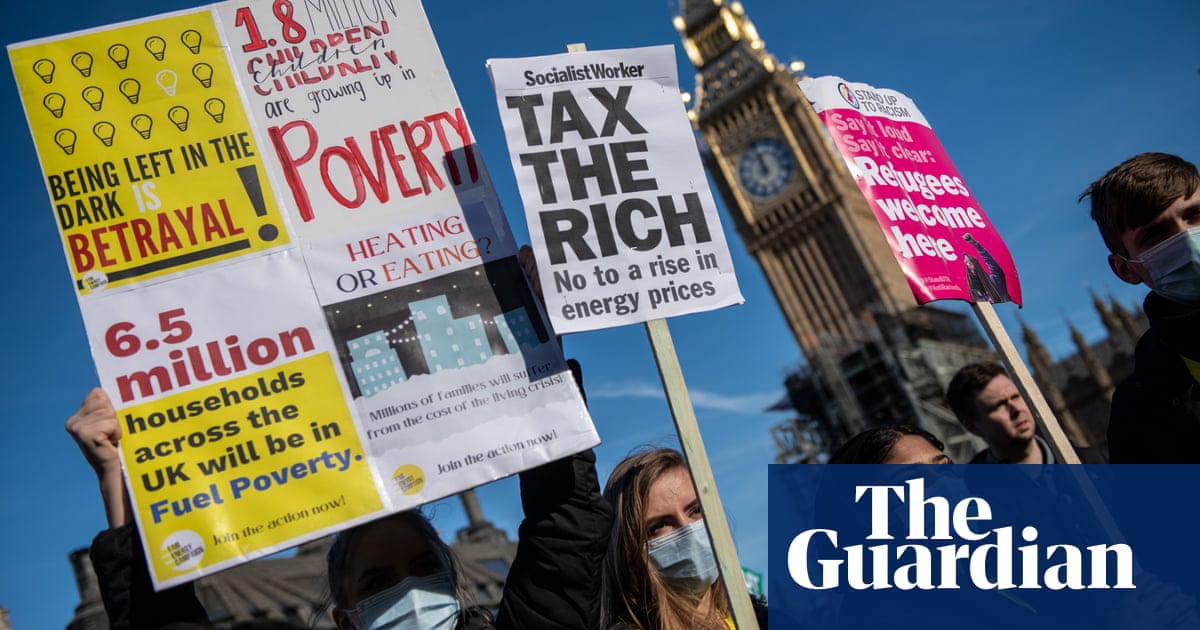
Jonny Uttley, CEO of the Education Alliance academy trust, which runs seven schools in Hull and the East Riding of Yorkshire, was shouting and swearing at the television news on Wednesday evening. The fracking vote in the Commons had descended into noisy chaos, with allegations that Tory backbenchers were being manhandled into voting with Liz Truss’s ailing government.
The contrast between the Westminster circus and what was happening in his primary and secondary schools couldn’t have been starker. Earlier, Uttley had met his headteachers to make an impossible choice: should they cut vital teaching staff or feed hungry children who weren’t entitled to free school meals.
“Do you hold reserves back ready for government spending cuts to avoid cutting staff, or do you feed hungry children by setting up breakfast clubs and subsidising meals?” he says. “That is the discussion we were having.”
Uttley’s schools are seeing “a significant rise in real poverty” as the cost of living crisis deepens. He worries that, particularly at secondary school level, it can be hard to spot the young people who are skipping meals because their families are struggling to pay for food for the first time.
He points out with heavy irony that his trust is one of the lucky ones because it has strong reserves, which he will raid this year to manage huge energy bills and a necessary, but unfunded, pay rise for teachers. He has cut spending on maintaining buildings and IT. But he has no idea how his schools will survive if additional funding cuts are announced at the spending review in a week’s time. “There comes a point where we simply run out of money,” he says.
Paul Whiteman, general secretary of the National Association of Head Teachers, says the mood among heads has shifted “from anger to desperation”. He has just returned from a trip around the country, talking to union members, and reports: “At each of these meetings there was at least one head in tears.”
He says that most school leaders won’t usually speak out about underfunding, leaving that to the unions because they don’t want to “talk their school down” or scare the families they serve. “But right now they are shouting ‘Crisis!’ loud and clear. That means we’re in real trouble.”
Suzanne Best, headteacher at Great Kingshill, a Church of England primary academy in Buckinghamshire, has been a head for 10 years and prides herself on being good at financial management. But she admits: “Right now I’m telling my senior team I don’t know what to do.” She says schools like hers are finding themselves in deficit “because they didn’t have a crystal ball”, and the government is doing nothing to help them.
A £75,000 reserve was more than wiped out by the teachers’ pay rise, then came energy bills that rocketed from £12,000 to £48,000 for gas, and £6,000 to £22,000 for electricity, plus higher costs for everything else they buy. She is now facing deficit cuts.
“We can cut back on photocopying, resources and school trips, but ultimately that won’t be enough and it has to come down to staff cuts,” she says. “As people leave, we won’t replace them and that will affect the children.”
Best says she wouldn’t be surprised if there is an exodus of broken school leaders from the system over the next year. “The new heads coming in are overwhelmed,” she explains. “And many heads who were just hanging on after the pandemic can’t take much more.”












